
Epicenter K, which has been developing agricultural business since 2016, has launched a seed plant in Khmelnytsky region. According to the group’s press release, the Cimbria seed line (Denmark) has been installed at the plant, which allows processing 80-100 tonnes of seeds per day in compliance with the technology of calibration, disinfection and packing.
“This year we’ve begun to work independently with seed material for our own needs. For the autumn sowing campaign, the enterprise prepared more than 2,000 tonnes of wheat seeds,” head of the Epicenter K agribusiness Vasyl Moroz said.
In addition, the group is currently negotiating with several foreign producers on the cultivation and processing of seed material for their needs. In the future, the company will switch to the cultivation of seed material of grain and leguminous crops with its subsequent refinement.
Epicenter K noted that for growing seeds, the agricultural holding has its own hybridization plots with irrigation equipment and rain machines.
The agricultural sector of the Epicenter K group of companies cultivates over 120,000 hectares of land in Vinnytsia, Khmelnytsky, Ternopil, Cherkasy, and Kyiv regions. The group also includes 20 livestock farms and six elevators. Epicenter K plans to reach one million tonnes of grain storage capacity.
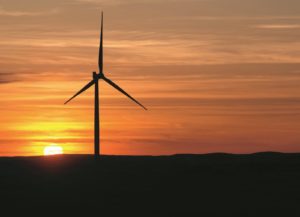
Ovid North LLC intends to build an Ovid North wind farm with a capacity of 80 MW (Ovidiopol district of Odesa region) in the area north of the existing Ovid Wind farm, according to the website of the unified register of environmental impact assessment. Within the project it is planned to build from 12 to 16 wind turbines with a capacity of 3.6 MW to 5.5 MW each. The height of the towers is from 120 meters to 160 meters. The rotor diameter is from 130 meters to 170 meters.
It is expected that the wind farm will generate 230,000 MWh per year.
At first, the holding specialized in the construction of hydropower plants and thermal power plants and built large energy facilities with a total capacity of about 1.7 GW. In 2000, it reoriented to the construction and operation of its own energy facilities using renewable energy sources. As of 2018, the holding’s portfolio included 79 MW of hydroelectric power stations, 162 MW of geothermal stations, and 373 MW of wind farms.
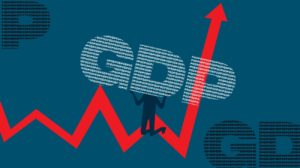
The draft national budget of Ukraine for 2020 provides for the allocation of UAH 245 billion for national security and defense, which makes up 5.4% of the gross domestic product of Ukraine, Minister of Finance Oksana Markarova has said. “In our spending, we focus on national security and defense. In this budget, UAH 245 billion is allocated for national security and defense. This is 5.4% of GDP. Expenses are allocated based on 2019 expenditures,” Markarova said, presenting the draft national budget in the session hall of the Verkhovna Rada.
“Please note that there appeared a separate budget program, in which additional funds are foreseen for the National Security and Defense Council, which will be distributed by second reading,” she added.
The draft national budget for 2020 foresees UAH 245.8 billion for national security and defense, including UAH 207.8 billion in expenses under the budget programs of the Ministry of Defense, UAH 10 billion in state guarantees, UAH 28 billion in additional expenses from the general fund according to the budget program of the National Security and Defense Council (NSDC) “Unallocated expenses on national security and defense,” which will be distributed separately by the decision of the NSDC.
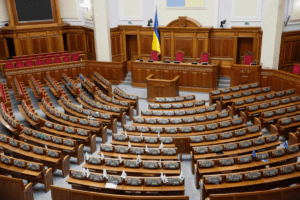
Ukraine’s Verkhovna Rada has ratified a protocol on Amendments to the Convention between the Government of Ukraine and the Republic of Turkey for avoidance of double taxation with respect to taxes on income and real estate.
An Interfax-Ukraine correspondent has reported that a total of 320 MPs backed bill No. 0005 on ratification of the amendments on Wednesday.
According to the conclusion of the foreign policy committee, the changes relate, in particular, to the procedure for taxation of income received by residents of the state, which is party in the treaty, from the disposal of shares or other rights; the procedure for taxation of remuneration received in connection with employment on a ship, aircraft, or other transport operated by an enterprise of the state, which is party in the treaty. The changes will also concern the exchange of information.
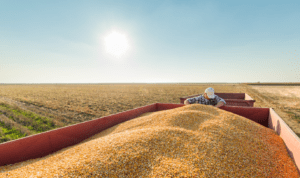
The U.S. Department of Agriculture (USDA) reviewed downwards its forecast for exports of rapeseeds from Ukraine in the 2019/20 agricultural year (September-August) by 0.1 million tonnes compared with the August forecast, to 2.7 million tonnes.
According to the September report, published on the USDA website, the forecast for the export of Ukrainian soybean meal was reduced by 0.2 million tonnes to 0.7 million tonnes due to stronger domestic demand.
In general, the forecast for the export of oilseeds from Ukraine in September was reduced by 0.1 million tonnes compared to the forecast in August, to 4.75 million tonnes, meal exports – by 0.2 million tonnes, to 5.8 million tonnes, while at the same time, the forecast for the export of vegetable oil remained at 6.3 million tonnes, oilseed refining – at 17.15 million tonnes.
As reported with reference to the Ministry of Agricultural Policy and Food, in 2018, Ukraine harvested 13.7 million tonnes of sunflower, 4.4 million tonnes of soybeans, and 2.6 million tonnes of rapeseed.
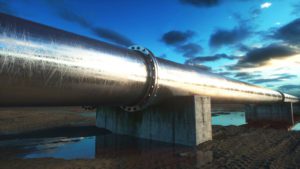
Vice-President for Energy Union Maroš Šefčovič has said that underground storage filling levels in the European Union (EU) and Ukraine are good.
“A few words on preparations ahead of this winter. I am glad to say that EU underground storage filling levels are very good – currently standing at 96% of full capacity,” Šefčovič said at a press conference in Brussels after the EU-Ukraine-Russia trilateral gas talks.
“Ukraine’s underground storage filling levels are also good – currently at around 19.6 billion cubic meters, almost 4 billion cubic meters above levels in September last year,” he said.